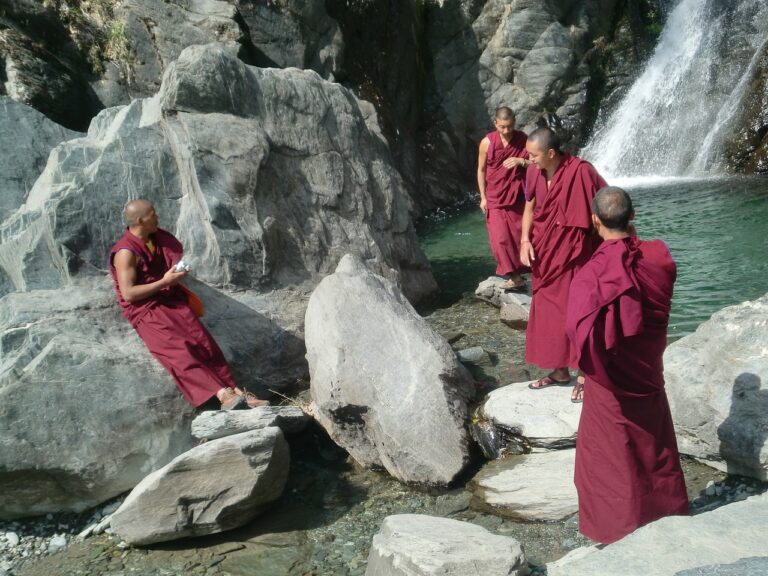Media Training for Engaging with Housing Advocacy Groups: All panel login, Mahadev book online, Get cricket id
all panel login, mahadev book online, get cricket id: In today’s digital age, social media has become an integral tool in modern election campaigns. With the widespread use of platforms like Facebook, Twitter, and Instagram, political candidates are utilizing social media to reach a larger audience, engage with voters, and ultimately sway public opinion. The role of social media in election campaigns cannot be overstated, as it has the power to shape the outcome of elections and influence the political landscape.
The Impact of Social Media on Election Campaigns
Social media has revolutionized the way election campaigns are run. Candidates can now reach millions of voters instantaneously, share their message, and garner support with just a few clicks. Social media platforms allow candidates to target specific demographics, tailor their messaging, and engage with voters in real time. This level of connectivity and interaction was unprecedented in traditional campaign methods.
Moreover, social media provides a platform for candidates to bypass traditional media outlets and communicate directly with voters. This direct line of communication allows candidates to control their own narrative, share their platform, and address any misconceptions or criticisms in real time. Candidates can also use social media to mobilize supporters, organize events, and fundraise for their campaigns.
The Role of Social Media Platforms in Election Campaigns
Different social media platforms offer unique opportunities for candidates to connect with voters. For example, Facebook allows candidates to reach a broad audience through targeted ads, live videos, and interactive content. Twitter, on the other hand, is a platform known for its real-time updates and engagement with followers. Instagram is a visual platform that is ideal for showcasing a candidate’s personality, values, and behind-the-scenes moments.
Candidates can also utilize newer platforms like TikTok and Snapchat to reach younger voters who may not be as active on traditional social media platforms. These platforms offer unique features like short-form videos, filters, and stickers that can be used to create engaging and shareable content.
The Challenges of Social Media in Election Campaigns
While social media offers many benefits to election campaigns, it also presents challenges and risks. Candidates must navigate issues like fake news, misinformation, and online trolls who may spread false information or attack their credibility. Social media can amplify negative stories or controversies, making it crucial for candidates to effectively manage their online presence and respond to any crises that arise.
Additionally, the algorithms used by social media platforms can impact the reach and visibility of a candidate’s content. Candidates may need to invest in advertising or sponsored posts to ensure their message reaches a wider audience. The constantly evolving landscape of social media also means that candidates must stay up to date on platform trends, updates, and best practices to effectively engage with voters.
The Future of Social Media in Election Campaigns
As social media continues to evolve, its role in election campaigns will only grow. Candidates who embrace social media and effectively leverage its capabilities will have a competitive edge in reaching voters and building support. The ability to connect with voters in a personalized and authentic way is invaluable in today’s political climate.
FAQs
Q: Can social media influence election outcomes?
A: Yes, social media can influence election outcomes by shaping public opinion, mobilizing supporters, and spreading campaign messaging.
Q: How can candidates effectively use social media in their election campaigns?
A: Candidates can effectively use social media by engaging with voters, sharing compelling content, utilizing targeted ads, and staying active and responsive online.
Q: What are some best practices for candidates on social media?
A: Some best practices for candidates on social media include staying authentic, posting regularly, responding to comments and messages, and monitoring their online reputation.
Q: How can candidates combat fake news and misinformation on social media?
A: Candidates can combat fake news and misinformation by fact-checking information before sharing it, staying transparent with voters, and addressing any false claims or rumors promptly.
In conclusion, social media is a powerful tool in modern election campaigns that can influence public opinion, mobilize supporters, and shape election outcomes. Candidates who effectively leverage social media platforms can connect with voters in a meaningful way and build support for their campaigns. As social media continues to evolve, its role in election campaigns will only become more significant, making it essential for candidates to stay informed, engaged, and proactive in their online presence.







